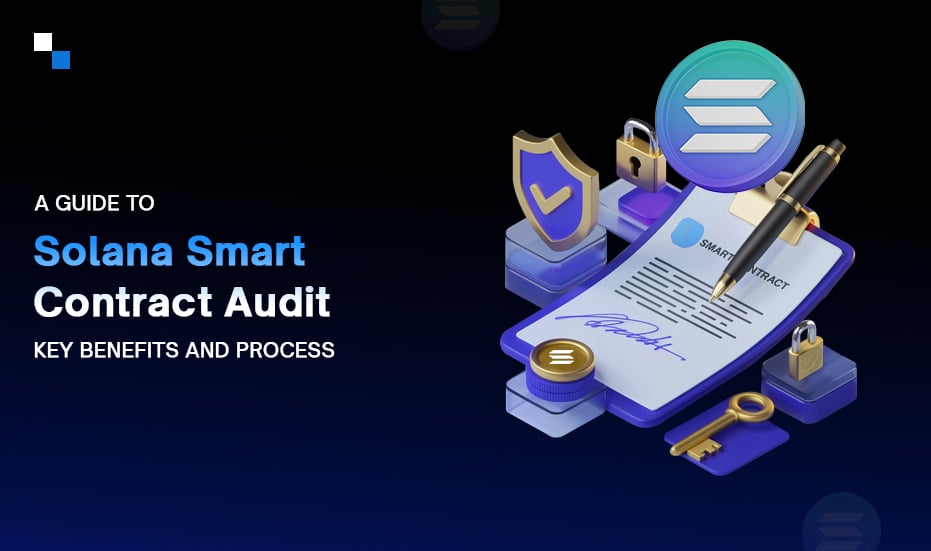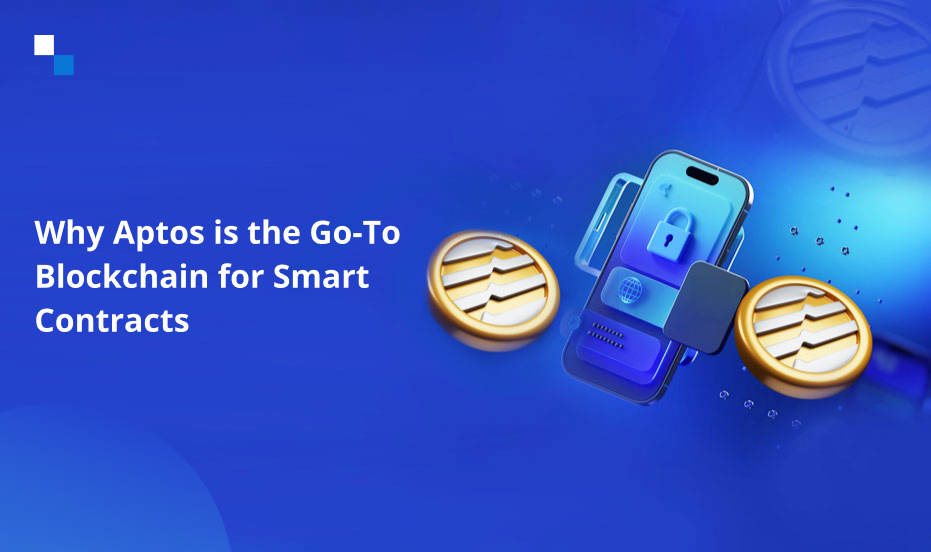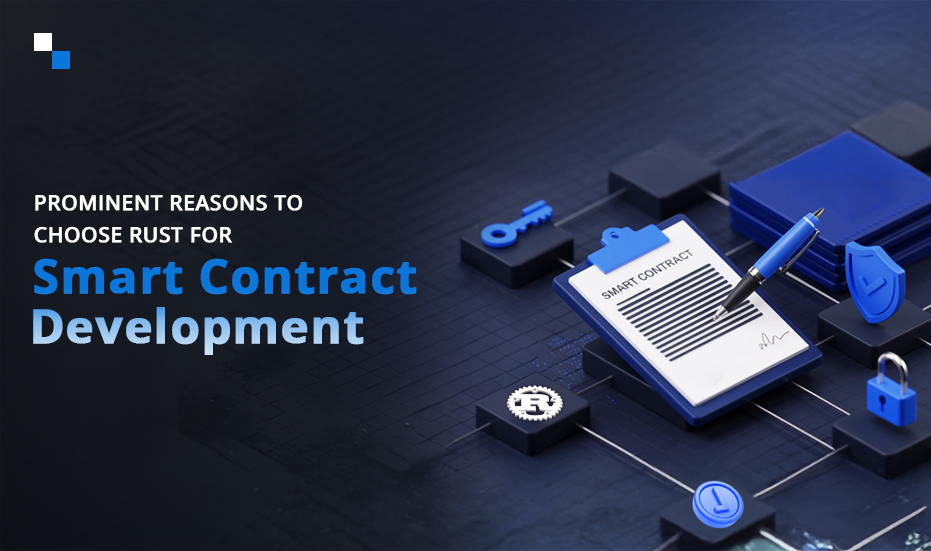
Unmasking the Top 10 Decentralized Identity Verification Companies In The USA
April 25, 2024
AI and Algorithmic Crypto Trading Bot Development: An Overview
April 25, 2024The world of international trade is riddled with complexities. Paper-based documentation, reliance on intermediaries, and the risk of fraud all contribute to delays, inefficiencies, and increased costs. In today’s scenario, businesses are constantly seeking ways to streamline international transactions and mitigate risks associated with cross-border dealings. As blockchain technology is slowly replacing the traditional methods of handling global trading, we can’t deny the potential of smart contract development for transforming the way companies conduct business across borders. Smart contract development services are leveraging the power of blockchain and self-executing contracts to offer a secure, transparent, and efficient solution for facilitating international business transactions.
Understanding Smart Contracts
At the core of smart contracts lies the concept of self-executing agreements, where the terms and conditions of a contract are encoded into lines of code and deployed on a decentralized blockchain network. Smart contracts operate on decentralized blockchain networks, ensuring that no single entity has control over the execution or modification of the contract. A smart contract development company can leverage decentralization to ensure fairness & transparency and eliminate the potential for manipulation or tampering. Once deployed, these self-executing codes become immutable and automatically execute the agreed-upon actions when predefined conditions are met, eliminating the need for manual interventions or intermediaries.
Smart contracts for international trade typically comprise the following elements:
- Participants: Clearly identified parties involved in the transaction, such as buyer, seller, and escrow agent (optional).
- Conditions: Pre-defined criteria that must be met for the contract to be executed, such as proof of shipment, customs clearance, or proper inspection of goods.
- Actions: Automated actions are triggered when pre-defined conditions are met, such as releasing funds, transferring ownership of digital assets, or notifying relevant parties.
- Oracles: External data feeds that provide real-world information to the smart contract, enabling it to react to events outside the blockchain (e.g., shipment arrival confirmation).
Enforcing Legal Clauses in International Transactions Through Smart Contracts
A key question surrounding smart contracts is their enforceability in international disputes. While smart contracts themselves reside on the blockchain and are immutable, the legal framework for resolving disputes remains in the real world.
One approach is to create “hybrid contracts” that combine a traditional legal agreement with a smart contract. The traditional agreement outlines the overall terms and dispute resolution mechanisms, while the smart contract automates specific aspects of the transaction.
Smart contract development offers a unique opportunity to encode legal clauses and regulatory requirements directly into the contract’s logic. Smart contract development services usually choose Ethereum for drafting self-executing codes using the Solidity programming language. However, there are more blockchains that support smart contracts so you should make sure that the developers of the smart contract development company you are going to hire are apt in blockchain-native programming language for translating complex legal agreements into executable code. It will ensure that all parties involved in the transaction adhere to the agreed-upon terms and conditions, reducing the risk of non-compliance and fostering trust among participants.
Ensuring Consumer Protection
Consumer protection is of paramount importance while handling international business transactions. Smart contracts can play a crucial role in safeguarding the interests of consumers by incorporating clauses that protect their rights and ensure fair treatment. For instance, smart contract development experts can include provisions for dispute resolution mechanisms, refund policies, or escrow services, providing an additional layer of security and recourse for consumers.
Here’s how smart contracts can enhance consumer protection in international business:
- Transparency and Fairness
One of the defining features of smart contracts is its ability to promote transparency and fairness in international business transactions. Smart contract development services can leverage the inherent transparency of blockchain technology so that all parties involved can access a verifiable and immutable record of the contract’s execution. It automatically builds trust and accountability. This transparency eliminates the chances of manipulation or biased decision-making and ensures that transactions are conducted fairly and per the agreed-upon terms.
- Escrow Services
Smart contracts can act as secure escrow agents, holding payment until pre-defined conditions are met. It means that payments won’t be released unless the product or services are delivered successfully. It protects consumers from paying upfront for goods or services that may never materialize.
- Dispute Resolution Mechanisms
Smart contracts can be programmed with automated dispute resolution protocols that streamline the process for consumers seeking redress.

Smart Contracts Eliminate the Need for Auditing
Auditing is a critical aspect of international business transactions, as it ensures compliance with relevant regulations, industry standards, and contractual obligations. By seeking the help of a smart contract development company, you can free yourself from the stress of auditing by maintaining a tamper-proof record of all interactions and transactions. Auditors can easily access and verify the execution of smart contracts. It will streamline the audit process and reduce the risk of errors or discrepancies.
Challenges and Solutions in Smart Contract Development
Smart contracts offer a revolutionary approach to automating agreements and streamlining transactions. However, smart contract development services usually come across several challenges.
Here are some key hurdles and potential solutions:
Challenge 1: Security Vulnerabilities
Smart contracts are immutable code stored on a blockchain. Any vulnerabilities in the code can be exploited permanently, potentially leading to significant financial losses.
Solution:
- Thorough Security Audits: Cross check the code for vulnerabilities before deployment to eradicate the chances of technical flaws that can result in heavy losses.
Challenge 2: Limited Functionality
Current smart contract platforms have limitations in terms of processing power and storage capacity. This restricts the complexity of operations that can be programmed within a smart contract.
Solution:
- Layer-2 Scaling Solutions: Exploring layer-2 scaling solutions for smart contract development can help offload some of the processing burden while maintaining security.
- Modular Design: Breaking down complex functionalities into smaller, more manageable modules can improve efficiency within the limitations of the platform.
Challenge 3: Difficulty in Upgrading Smart Contracts
Smart contracts are generally immutable after deployment. This makes it difficult to fix bugs or introduce new features without deploying a new contract entirely.
Solution:
- Upgradable Smart Contract Designs: Utilizing design patterns that allow for controlled upgrades to specific functionalities within the contract can provide more flexibility.
- Proxy Contracts: Implementing proxy contracts that act as an intermediary layer between the user interface and the main smart contract can facilitate upgrades to the underlying logic without affecting user interactions.
Challenge 4: Legal and Regulatory Uncertainty
The legal implications of smart contracts are still evolving. Uncertainties surrounding enforceability and regulatory frameworks can create challenges for widespread adoption.
Solution:
- Standardized Legal Frameworks: Smart contract development services should collaborate with legal experts to establish clear and standardized legal frameworks around smart contracts.
- Hybrid Contracts: Combining traditional legal agreements with smart contracts can leverage the strengths of both approaches.
Challenge 5: User Interface Complexity
Interacting with smart contracts often requires specialized knowledge of blockchain technology and wallets. This can create a barrier to entry for mainstream users.
Solution:
- User-Friendly Wallets and Interfaces: Developing user-friendly wallets and interfaces that abstract away the complexities of blockchain technology can improve accessibility for the general public.
Wrap Up
As businesses are getting adapted to the transformative blockchain technology, we can expect to see a significant impact on the way they conduct international trade and commerce. Smart contracts have the potential to foster trust, transparency, and fairness in global transactions, and paves the way for a more secure and efficient global business ecosystem.
Antier empowers businesses to fully realize the potential of smart contract development by designing, deploying, and managing secure and compliant smart contracts. We make it easier for businesses to navigate the complexities of international transactions with confidence. Our experts assist in mitigating risks and unlocking new opportunities in the ever-evolving global marketplace. Choose us for crafting error-free self-executing codes that frees you from legal complexities and ensures consumer protection. Let’s have detailed discussions before you invest in our Smart contract development services. Get in touch with us today!



